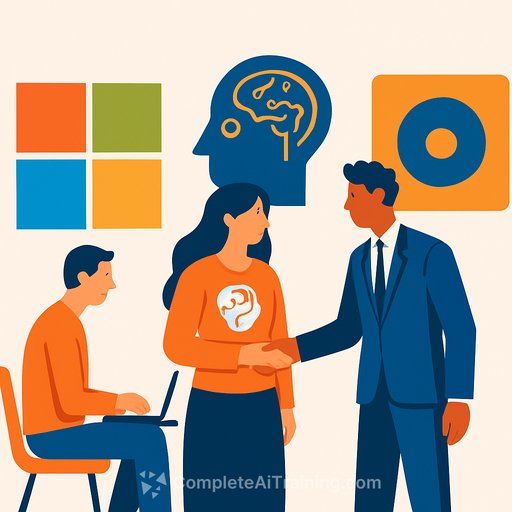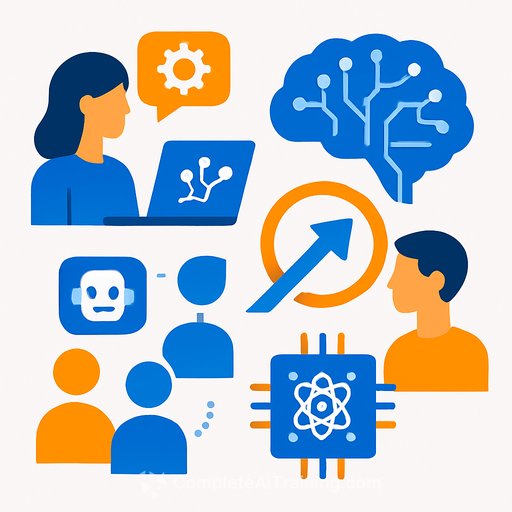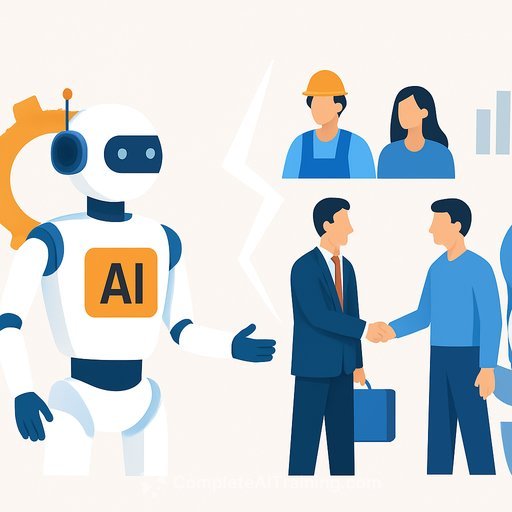The AI Talent War: Microsoft Hires DeepMind AI Engineers
Microsoft is making a significant move in the ongoing AI talent competition by recruiting over 20 top engineers from DeepMind, Google's leading AI research lab. This surge in hiring is part of Microsoft's strategy to boost its AI research and development efforts, particularly around its Copilot initiative. The US tech sector is witnessing fierce rivalry as major players like Meta, OpenAI, Apple, and Amazon aggressively seek skilled AI professionals from each other and from smaller startups.
Amar Subramanya, formerly Head of Engineering for Google’s Gemini chatbot, recently joined Microsoft as Corporate Vice President of AI. He praised Microsoft’s culture as "refreshingly low-ego yet bursting with ambition." Alongside Amar, Microsoft added key figures such as Engineering Lead Sonal Gupta, Software Engineer Adam Sadovsky, and Product Manager Tim Frank. This hiring push has brought at least 24 experts from DeepMind into Microsoft within six months.
Strategic “Acqui-Hiring”
Microsoft's recruitment drive follows its acquisition of most staff from AI startup Inflection earlier in the year. This $650 million deal brought Co-Founder Mustafa Suleyman onboard to lead Microsoft’s consumer AI strategy. Such “reverse acqui-hiring” lets companies secure talent and intellectual property without full company acquisitions. Mustafa’s presence has intensified the Microsoft-Google rivalry, especially given his past connection with DeepMind Co-Founder Sir Demis Hassabis.
Mustafa also recruited Dominic King and Christopher Kelly from DeepMind to launch Microsoft’s AI health unit. This unit developed a medical diagnostic system reported to outperform human doctors by a factor of four in complex cases, demonstrating the practical impact of these targeted hires.
Industry-Wide Talent Competition
The battle for AI talent has led companies to offer massive compensation packages. Meta reportedly offered signing bonuses up to $100 million to attract OpenAI staff, drawing criticism from OpenAI CEO Sam Altman, who called such moves “mercenary.” Senator Ron Wyden highlighted concerns that a few companies dominate the market by buying up talent rather than focusing on innovation. Three U.S. Senators have urged antitrust authorities to review how these recruitment practices may consolidate AI market control.
Market Dynamics Behind the Aggressive Hiring
The high cost of AI development explains the pressure to secure top talent. Building AI systems requires expensive chips, energy-heavy data centers, and skilled engineers — resources smaller companies often cannot match. MIT Business Professor Michael Cusumano noted that smaller firms may see little chance to compete without deep financial resources. Internal Microsoft data shows ChatGPT attracting over 600 million monthly users, with Google’s Gemini close behind at 400 million.
Google’s Response to Talent Departures
Google has responded to these departures with internal restructuring aimed at retaining its remaining AI experts. Some former DeepMind engineers, like Mat Velloso, have moved to Meta’s new team focused on artificial general intelligence (AGI). Google maintains that DeepMind’s attrition rates remain below industry averages and continues to recruit similar numbers of researchers from Microsoft and others.
A Google spokesperson stated, “We are thrilled to attract the world’s leading AI talent, including researchers and engineers from rival labs.” Microsoft declined to comment on its recruitment tactics.
What Executives Should Take Away
- Talent acquisition is a critical competitive advantage in AI development. Securing top engineers can accelerate product innovation and market leadership.
- Reverse acqui-hiring is becoming a popular strategy to gain expertise without full acquisitions, reducing costs and integration risks.
- Compensation wars signal a tight labor market and a need for companies to rethink retention and recruitment strategies.
- Regulators are paying attention to hiring practices that may limit competition in the AI sector.
- Market dominance depends on resources beyond talent—investment in infrastructure and user adoption also plays a key role.
For executives shaping AI strategy, staying informed on talent movements and market dynamics is essential. To explore practical AI training and keep your teams competitive, visit Complete AI Training.
Your membership also unlocks:






